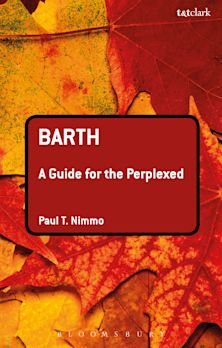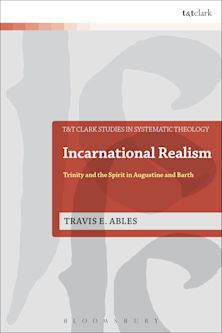- Home
- ACADEMIC
- Theology
- Karl Barth
- God's Being in Reconciliation
God's Being in Reconciliation
The Theological Basis of the Unity and Diversity of the Atonement in the Theology of Karl Barth
God's Being in Reconciliation
The Theological Basis of the Unity and Diversity of the Atonement in the Theology of Karl Barth
You must sign in to add this item to your wishlist. Please sign in or create an account
Description
One of the most pressing issues in the doctrine of the atonement today is the question of the unity and diversity of the work of Christ. What are we to make of the diversity within the biblical witness and the history of doctrine when it comes to explanations of the meaning and significance of Jesus' death and resurrection? Without a grasp of the unity of his work, our understanding and use of the diversity runs the risk of becoming haphazard and disordered. Proposals regarding the unity of Christ's work today tend to focus on the metaphorical nature of language, the role of culture, and various possible conceptual schemes, rarely reflecting on unity and diversity proper to the being God.
To fill this gap, Johnson draws on Karl Barth's integrated account of the doctrines of God and reconciliation, harnessing the resources contained within the doctrines of the Trinity and divine perfections to energize a properly theological account of the unity and diversity of the atonement.
Table of Contents
Abbreviations
1. Introduction
2. God's Being in Act and the Doctrine of the Atonement
3. Trinity and Atonement
4. Atonement and Attributes
5. Atonement and Sin
6. A Temple Theory of the Atonement
7. Conclusion
Select Bibliography
Biblical Index
Index
Product details
| Published | 01 Mar 2012 |
|---|---|
| Format | Ebook (Epub & Mobi) |
| Edition | 1st |
| Extent | 240 |
| ISBN | 9780567150165 |
| Imprint | T&T Clark |
| Series | T&T Clark Studies in Systematic Theology |
| Publisher | Bloomsbury Publishing |
About the contributors

ONLINE RESOURCES
Bloomsbury Collections
This book is available on Bloomsbury Collections where your library has access.


































